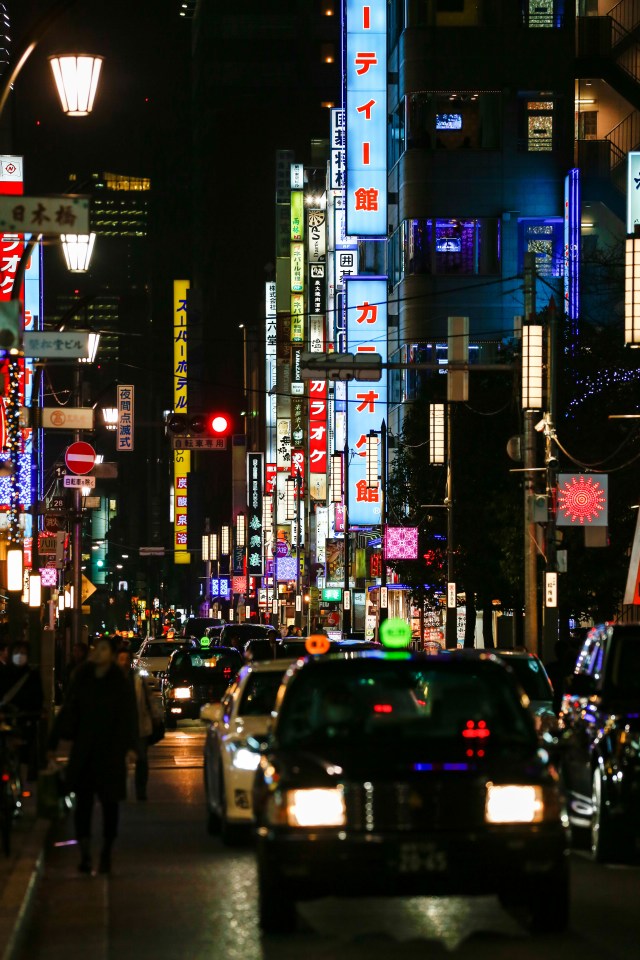Britain and Japan are both islands holding on to legacy, not building for the future

Both island countries, both struggling with an ageing population, and both holding onto former glory without planning for the future. Japan and the UK have a lot to learn from each other, writes Leon Emirali
Looking out of my window onto the bustling metropolis that is Japan’s capital, it’s hard to see anything other than a distinctly foreign world. The gabled temple roofs, dazzling neon lights, trains that run on time – all things seldom witnessed on British soil. Yet, scratch beneath the superficial, and uncanny similarities between the UK and the “land of the rising sun” begin to emerge.
Of course, there is the geographic. Both Japan and the UK are monarchist island nations with a historic record of punching above their weight. Both are surrounded by neighbours with whom relations can hardly be described as perfect. There are particular similarities between the UK’s agitated relationship with France and Japan’s with South Korea. Historic rivals with an uneasy partnership, brought closer by shared enemies rather than shared values.
Then there are the economic similarities. Our two economies are roughly the same size. Japan ranked third by measure of global GDPs, and the UK trailed two places behind them. In this case, similar economic size also means similar economic problems. Japan’s ageing population and declining workforce has been a fixture of global economic commentary for a number of years now, whereas it’s become a recent cause for concern in the UK. This is not least punctuated by the recent Budget delivered by Jeremy Hunt (who is incidentally a Japanophile, having lived in the country for 18 months). The Chancellor’s ‘back to work Budget’ was designed specifically to combat the potential perils of an ageing, inactive workforce and to stop the UK sliding towards the economic stagnation that has plagued Japan’s “lost decades” since the 1990s.
Beyond the similarities that can be measured in numbers and percentages, there are also intangible comparisons between the two nations on opposite sides of the world. The Japanese are famed for their ‘shimaguni konjo’ (island mentality). There is a perception that both countries possess a sense of uniqueness – dare I say exceptionalism – compared to their neighbours, and perhaps Brexit has highlighted the UK’s own determination to go it alone.
Exploring Tokyo’s sprawling electronics markets, it is clear that the East Asian country is struggling to come to terms with the new world of technology we embrace. The universal adoption of smartphones has meant the world has graduated from owning a separate camera, calculator and music player. But in Japan it seems there is still a nostalgic attachment to the consumer devices that their economy became famed for in the 80s. The same is happening in the Japanese auto industry, with Japanese automakers holding back from the global rush towards electric vehicles – instead hedging their bets for a future that includes hybrid vehicles and those run on more environmentally-friendly synthetic fuels.
Can the same be said for Britain’s approach to its own legacy industries? Are we clinging onto what remains of our industrial greatness, whilst refusing to accept the world has moved on? Maybe.
Both Japan and the United Kingdom are incredible countries that have given so much. From culture and cuisine to innovation and discovery, Japan and the UK have undoubtedly left their mark on the world – but that world is changing around them. And fast.
The announcement last week of the UK’s inclusion in the Comprehensive and Progressive Agreement for Trans-Pacific Partnership – or CPTPP – will see the UK’s already close trading ties with Japan intensify. Through likeminded partnership, perhaps Britain and Japan will become the perfect bedfellows as both nations seek to come to terms with their new roles in a revised global order.
